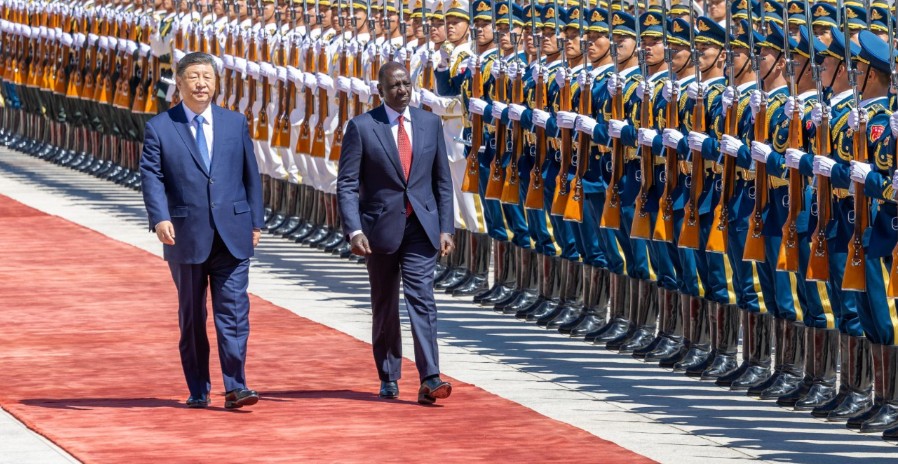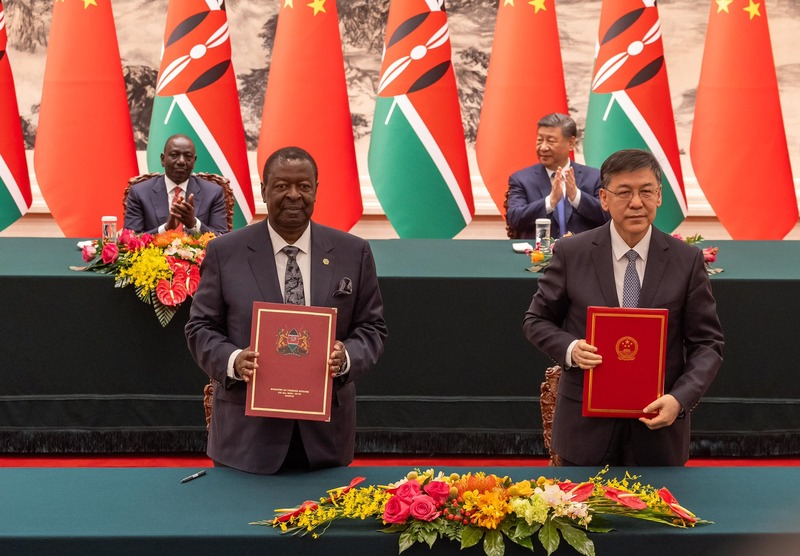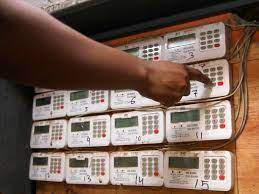Ruto: China visit was about development, not borrowing loans

Ruto said his administration is instead pursuing alternative financing methods that avoid burdening the country with debt.
President William Ruto has dismissed claims that his recent trip to China was for securing more loans.
Speaking at the Cooperative University on Tuesday, Ruto said his administration is instead pursuing alternative financing methods that avoid burdening the country with debt.
More To Read
- Motorists slam 30-year Chinese concession on Nairobi–Nakuru–Mau Summit highway
- China Road and Bridge Corporation, NSSF endorsed for mega Rironi–Mau Summit Road upgrade
- China deploys 48th Naval Escort Fleet to Gulf of Aden for anti-piracy mission
- Chinese companies are changing the way they operate in Africa: Here’s how
- New report shows China’s growing reach across 101 countries, Africa key to strategy
- Rwanda set to launch Africa’s first self-flying taxi
He clarified that Kenya did not borrow funds for the expansion of the Rironi-Mau Summit highway, a key road project expected to transform travel between Nairobi and western Kenya.
“When I was in China, many people thought I had gone to negotiate for more loans. However, we have developed alternative financing mechanisms that do not push the country into debt, which could endanger our future,” Ruto said during the installation ceremony of Dr William Chituga as the university’s Vice Chancellor.
“The road you saw listed, from Naivasha to Nakuru to Malaba, is not going to be built using government loans but through a toll infrastructure model under a public-private partnership.”
The Rironi-Mau Summit project will adopt the expressway model, allowing the contractor to recoup costs through toll collections. The existing two-way single carriageway will be upgraded into a four-lane dual carriageway, easing traffic congestion and enhancing connectivity across the corridor that links Nairobi to western Kenya.
In March, the Cabinet announced that construction of the highway would begin in June 2025 and take 24 months to complete.
“The project, which is set for completion within 24 months with a target date of June 2027, is part of Kenya’s broader infrastructure transformation aimed at enhancing connectivity across the country and the region while driving economic growth,” read the Cabinet dispatch.
Ruto had also pledged in December 2024 to dual the Naivasha-Nakuru-Malaba highway through a Public-Private Partnership.
 President William Ruto and China President Xi Jinping during the signing of multi-billion shilling deals. (X/William Ruto)
President William Ruto and China President Xi Jinping during the signing of multi-billion shilling deals. (X/William Ruto)
“The commitment I want to give you is that next year, we will begin the construction of a dual carriageway from Nairobi to Nakuru, and later extend it to Malaba,” he said in Eldoret at the time.
Development deals
The President recently concluded a five-day state visit to China, during which he signed multiple development deals focused on infrastructure, trade, and education. Among the major agreements was the extension of the stalled Standard Gauge Railway (SGR), particularly phase 2B from Naivasha to Kisumu and phase 2C from Kisumu to Malaba.
Additional infrastructure projects agreed upon include the dualing of the Northern Bypass, the dualing of Kiambu Road to the Northern Bypass, and the construction of the Nithi Bridge. The projects will be implemented under the Belt and Road Initiative (BRI), China’s global development strategy that emphasises infrastructure and economic cooperation.
Kenya, as a key BRI hub in Africa and the continent’s top recipient of Chinese development financing, saw its relationship with Beijing elevated to a Comprehensive Strategic Partnership in the New Era, the highest level of diplomatic engagement between the two nations.
Chinese Ambassador to Kenya, Dr Guo Haiyan, described the visit as a “great success,” saying it elevated bilateral ties to a new level.
“The two heads of state witnessed the signing of twenty state documents in fields such as infrastructure, education and training, cultural exchanges, trade, and media cooperation,” she said.
President Ruto held bilateral talks with Chinese President Xi Jinping in Beijing, during which both leaders reaffirmed their commitment to mutual prosperity and development.
“The two sides agreed to implement the outcomes of the FOCAC summit and synergise China’s Belt and Road Initiative with Kenya’s Bottom-up Economic Transformation Agenda and Vision 2030,” Ambassador Guo said.
The Chinese government also committed to importing more Kenyan products, including avocados and anchovies, a move expected to boost local farmers and exporters. Agreements on hygiene and quarantine standards were signed to facilitate fish exports to China.
In education, China pledged more scholarships and vocational training for Kenyan students. Universities from both countries will collaborate on scientific and academic research.
Further agreements included financing for the implementation of Phase III of Nairobi’s Intelligent Transport Management System (ITMS), which uses smart traffic technology to streamline road usage in the capital.
“This cooperation cements Kenya’s role as a key Belt and Road Initiative partner and enhances East Africa’s connectivity and trade integration,” Ambassador Guo noted.
During the Kenya-China Private Sector Roundtable and Business Forum, Ruto witnessed the signing of investment deals worth Sh137 billion (USD 1.06 billion). The agreements span manufacturing, agriculture, tourism, and infrastructure and are expected to generate over 28,000 jobs. Key investments include a Special Economic Zone in Kilifi and new agribusiness ventures in Kajiado and Baringo.
Ruto also used the forum to speak against global trade wars, calling for fairness in international commerce.
“Trade wars undermine the existing international order,” he said, while commending China’s support for the rights of developing nations.
President Xi reiterated China’s readiness to cooperate with developing countries to tackle global challenges, oppose unilateral sanctions and protectionism, and defend multilateral trade systems.
“The visit achieved fruitful results and reaffirmed China’s support for Kenya’s development journey,” Ambassador Guo said.
This was President Ruto’s first state visit to China since assuming office, and his third overall trip to the country, reinforcing Kenya’s strategic ties with its biggest trade and infrastructure development partner.
Top Stories Today













































